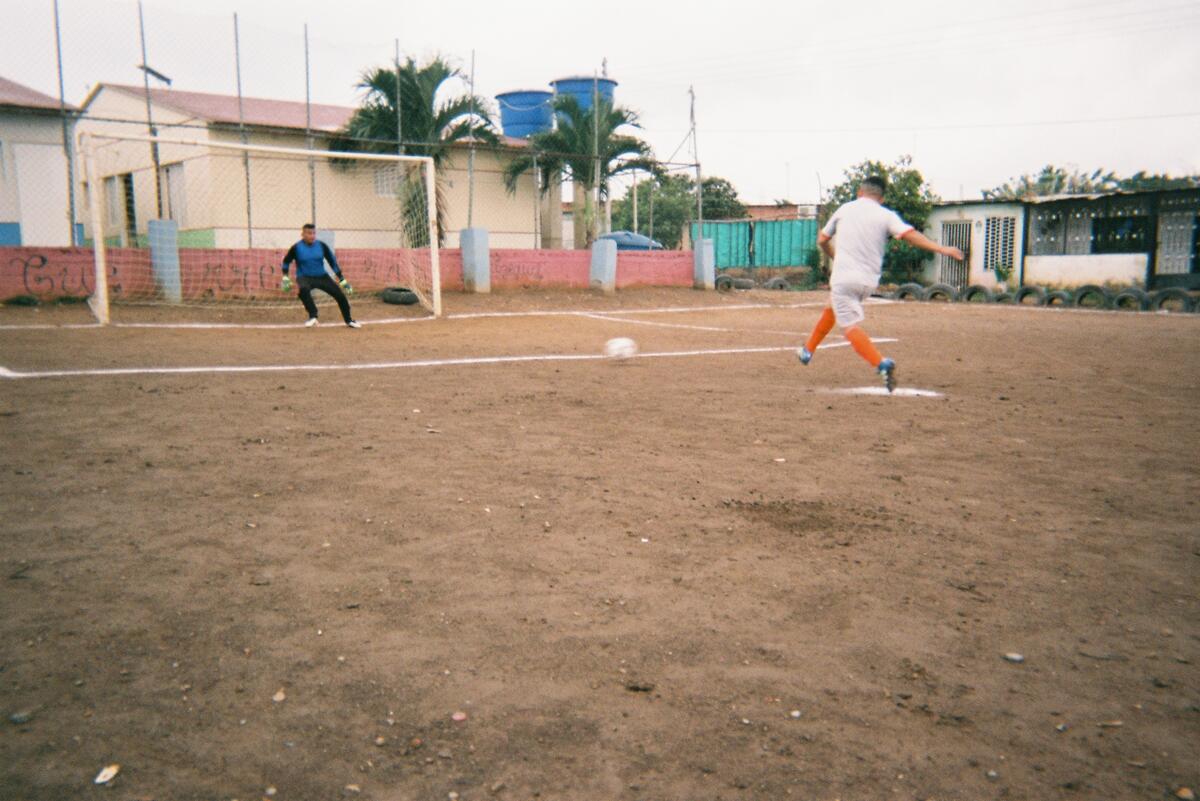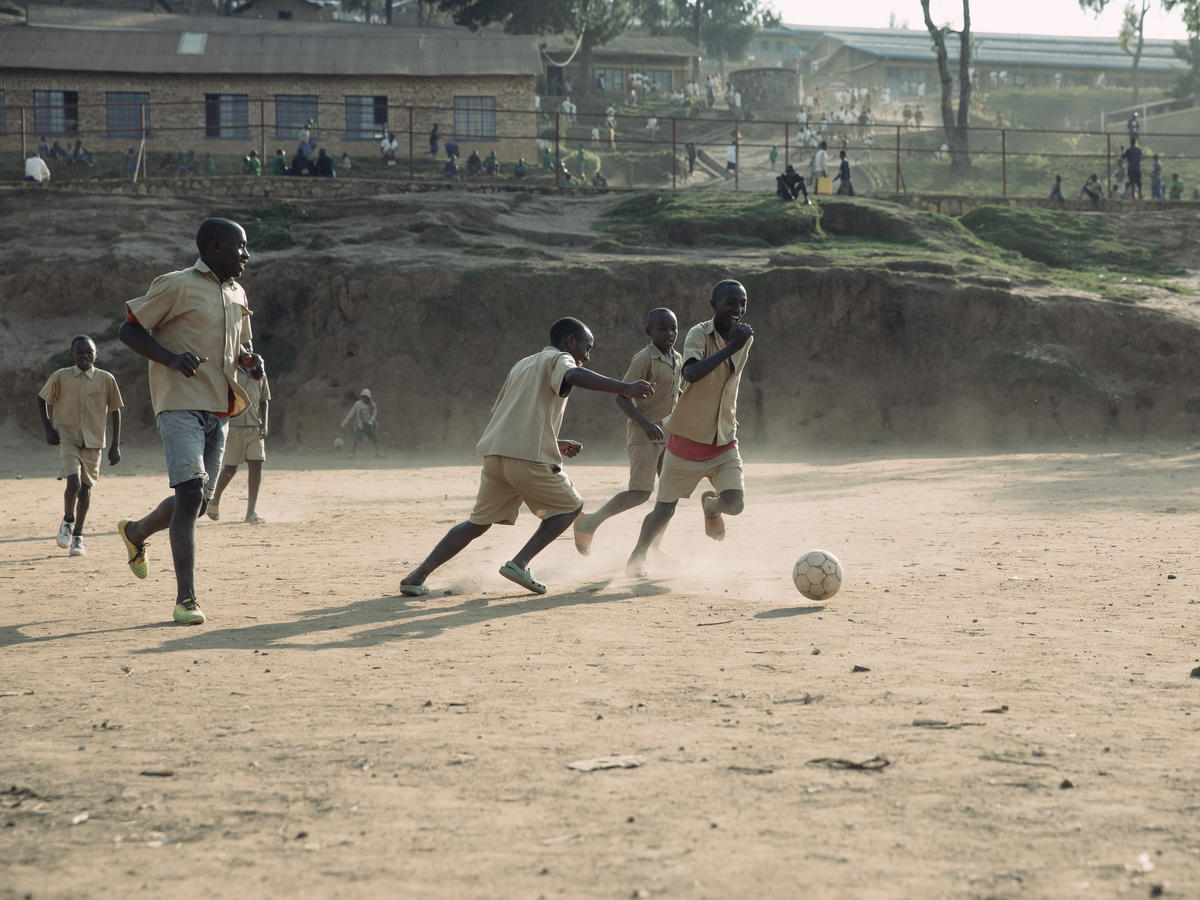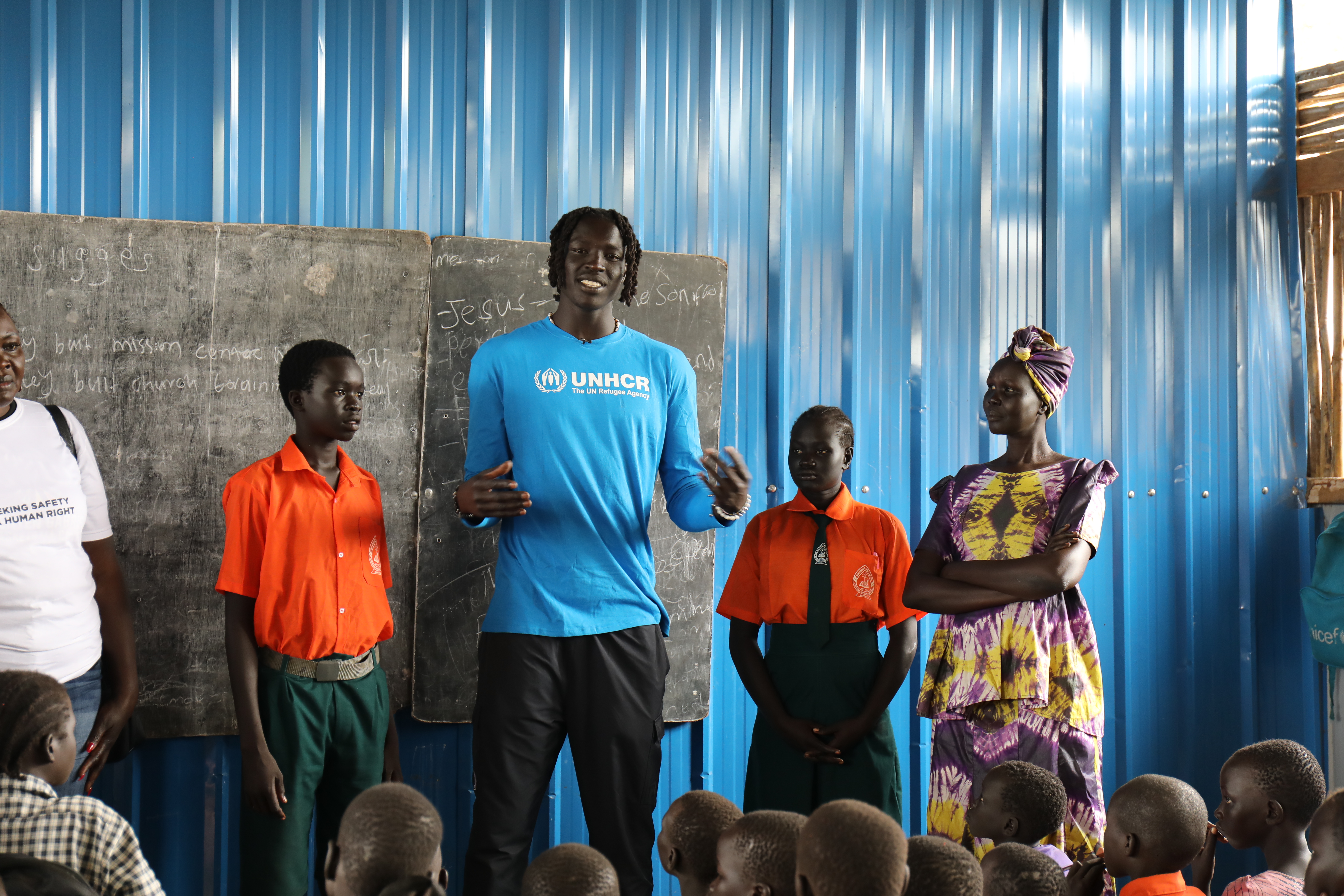Life on the run among Colombia's displaced
Life on the run among Colombia's displaced

BOGOTA, Colombia, January 2 (UNHCR) - The third "Race for Life" in Cazucá, a shantytown on the outskirts of the Colombian capital, was run on a Sunday morning just before Christmas.
The yearly competition - a 3.5-km jog up Cazucá's steep hills - has an uncommon aim: seeking an end to the killing of residents by irregular armed groups active in the neighbourhood.
All of the runners in the UNHCR-sponsored race get a basket of food for taking part in the event. Among this year's participants was Marlene Sanchez, a 41-year-old woman wearing a T-shirt with the number 569. Sanchez said she was never really into sports. In fact, like many others in the race, she associated running with very bad memories.
"I ran away from my town six years ago," she recalled. "One day, at the end of 2000, three men came to my house in Puerto Asís - in Putumayo, near the Ecuadorian border - and gave me two options: I could either give them my husband, a former soldier, and they would kill him. Or I could 'exchange' him for my eldest daughter, who was barely 13 then.
"That happened at three in the afternoon and 14 hours later we were leaving town. I took the first bus. I didn't care where it was headed for. That's how we ended up here, with my daughter and my younger son."
Sanchez and her husband split up soon afterwards.
Bogota is a long way from Puerto Asís, about 1,000 km, and is much different in climate and daily life. In Puerto Asís, Sanchez was the owner of a prosperous restaurant. Unlike many other displaced people, she was able to rent a hotel room during her first few days in Bogota. From there, she found an apartment for a few months before eventually moving to a house in Cazucá.
But a few months later, the people to whom she had rented her restaurant in Puerto Asís stopped paying the rent. She sold her house and got less than half its value. "What could I do?" she said. "They knew I could not go back and reclaim the rest of the money."
With the proceeds of the sale, she decided to go back into the restaurant business. But this time, she was not in it purely for the money. She invested the money she got from the house in Fundescol, a foundation to help displaced people, and opened a community dining hall in Cazucá.
For over two years, some 80 elderly displaced people and local residents came to lunch every day in exchange for a very small and largely symbolic sum of money. Sanchez said her work for Fundescol was the key component of her training for the race.
"I didn't train as such," she said. "But I walk no less than six hours every day - I have no money to pay for buses and I must go to downtown Bogota all the time to get help for my project. I think you can see why the race wasn't so difficult for me".
But life remains difficult for her and her family. Her restaurant has been closed for several months because she ran out of money and resources to keep it going.
Only a few days before the race, six years after she had to run for her own family's life, she finally received government-provided assistance for victims of forced displacement. But it came too late, long after it was needed. So Sanchez is now thinking of starting all over again.
"I'm looking for an opportunity to resettle with a group of other displaced families living in this area," she says. "We are ready to go anywhere where there is land that we can cultivate and start a business - one of these farms the government has recovered from the mafia. Enough is enough."
But before she uproots herself yet again, she plans to re-open her restaurant for a few days in January.
"I will be able to use the food I received for the race, and also the emergency aid they gave me a few days ago," she said. "It wasn't useful for me, but at least it can help others now."
For Sanchez and thousands of other Cazucá residents, many of whom have spent years fleeing from one place to the next, the daily race for life is far from over.
By Gustavo Valdivieso in Bogota, Colombia








